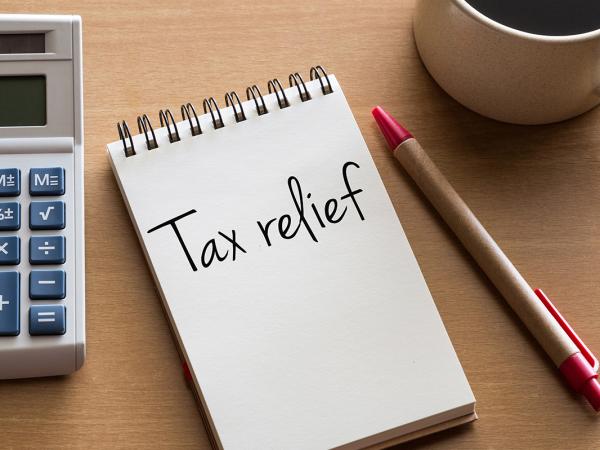Access to work scheme
We discuss below assistance available through the access to work scheme to help get disabled people into work and keep them in work, looking in particular at potential tax implications.

Content on this page:
Introduction
The access to work scheme is run by the Department for Work and Pensions (DWP) in England, Wales and Scotland and gives grants to help people start working or stay in work. This includes self-employment. You may qualify for help if you are disabled or have a health or mental health condition.
There is a different system in Northern Ireland called access to work (NI). We do not cover the rules for the Northern Ireland scheme in our guidance, but there is information on the nidirect website.
Eligibility
You will only be eligible if your employer is based in England, Scotland and Wales.
To qualify you must be aged 16 or over and in a paid job (including apprenticeship, work trial or internship) or self-employed. You can also qualify if you are about to start a job or work trial etc. It is not available for any voluntary work.
The main requirement is that the disability or health condition you have affects your ability to do your job or means you have to pay extra work-related costs.
You might not be able to qualify if you receive certain benefits. You should speak to the access to work helpline to find out more.
Access to work grants
You can apply for help whether you are employed or self-employed.
Access to work does not provide the support itself, but provides a grant to reimburse the cost of the support that is needed. An application has to be made by the self-employed person or employee (not their employer), so that an assessment can be made of their needs in the workplace and the appropriate level of grant can be calculated and arranged.
Access to work grants can contribute to the additional employment costs resulting from disability, that an employer would not normally be expected to fund. The money can be used to pay for a wide range of things such as:
- adaptations to the equipment you use,
- to purchase special equipment,
- to meet your fares to work if you can’t use public transport, and
- even to provide a support worker to help you in your workplace.
Access to work can pay up to 100 per cent of the approved costs if an individual is:
- unemployed and starting a new job, or
- self-employed, or
- working for an employer and has been in the job for less than six weeks.
Access to work will also pay up to 100% of the approved costs of help with:
- the Mental Health Support Service,
- support workers,
- fares to work,
- communicator support at interview.
Note that access to work grants may be subject to a limit of double the national average salary (for the period from 1 April 2023 to 31 March 2024, the limit was £66,000).
In some cases, there may have to be an arrangement where DWP pays a proportion of the costs, for example where the access to work customer is working for an employer, they've been in the job for six weeks or more and they need special equipment or adaptations to premises.
Employing a support worker
You may want to use your grant to employ someone to support you (a support worker). If you are self-employed, taking on a support worker is similar to taking on a personal assistant using a social care direct payment or NHS personal health budget. It means you could become an employer and need to think about paying wages, tax, National Insurance contributions and employment law. Our page on Employing a carer gives more information on how to deal with becoming an employer.
If you are an employee, it may be that your employer gets the grant to employ a support worker for you, in which case they deal with the consequent employer and tax obligations. If you get the grant yourself and use it to take on a support worker, then you could become an employer, as per the above.
We have also heard of a third scenario where an employed access to work recipient seems to have taken on a support worker themselves and access to work are paying the support worker directly (gross). If the hallmarks of an employment relationship between the claimant and support worker are present, a responsibility for operating PAYE and complying with other employer obligations still exists. Our understanding is that, under general principles, this actually sits with the claimant (as employer) even if they are not the one administering payment. We are concerned that in this situation, and in the absence of any specific agreement/understanding with HMRC, the claimant is at risk of being found non-compliant by HMRC by failing to operate PAYE.
Tax implications
There is very little factual guidance on this from HMRC or DWP. We outline below our view of how access to work grants should be treated for tax purposes. We suggest that you clarify this with HMRC, based on your particular circumstances.
Employees
If you are an employee and have received access to work funding yourself, for example for travel costs, you do not need to report anything to HMRC as the grant is not taxable income if it is spent entirely on the costs it is intended to reimburse.
If you are an employee, your employer may receive part of the grant, for example to cover expenses of equipment that they provide for you or to employ a support worker to assist you. This is different to you taking on a support worker personally, which could result in obligations on you as an employer, as mentioned above.
You will not be taxed on the value of those items or cost of providing a support worker as a personal benefit-in-kind. The tax rules specifically prevent a tax charge arising in those circumstances.
Employers or the self-employed
Generally, grants have to be accounted for in the business’s accounts. There is no specific exemption from tax for access to work grants, so we have to rely on normal accounting practice which says that government grants have to be accounted for in the business accounts.
Employers or the self-employed should therefore:
- include the full amount of the access to work grant for the relevant period as income in their accounts (the relevant period being date of receipt if accounts are prepared on the cash basis, or the period for which payment is due if preparing accounts on the accruals basis), and
- deduct the full expense of equipment provided or paying a support worker as an expense (again on a cash basis or accruals basis depending on your elected method of accounting).
Generally, this should mean there is no effective tax charge as the amount of the grant and the expense incurred will often match. Indeed, we understand that usually access to work operates by the expense first being incurred and then reimbursed on submission of receipts, so often match exactly.
Where this will not be the case is where the cost of support provided to the employee does not match the amount of the grant.
Such a mismatch in grant income and cost can also occur where the national average salary cap applies or where access to work only covers a percentage of the costs, as can be the case when an employee has been working for six weeks or more in a job but then applies for a grant.
More information
You can find a basic guide to the access to work scheme for England, Scotland and Wales on GOV.UK.
There is more detailed information on access to work, including on eligibility for self-employed awards and what the grants can be used for in the DWP’s access to work staff guide.
There is also a customer factsheet, which contains detailed information aimed at claimants.
If you have questions about the scheme you should speak to the access to work helpline. If you have questions about the tax consequences of receiving a grant, you should ask HMRC to clarify the position based on your circumstances.



